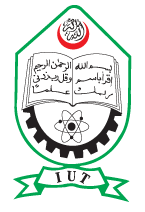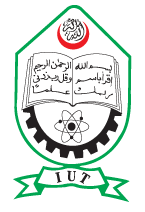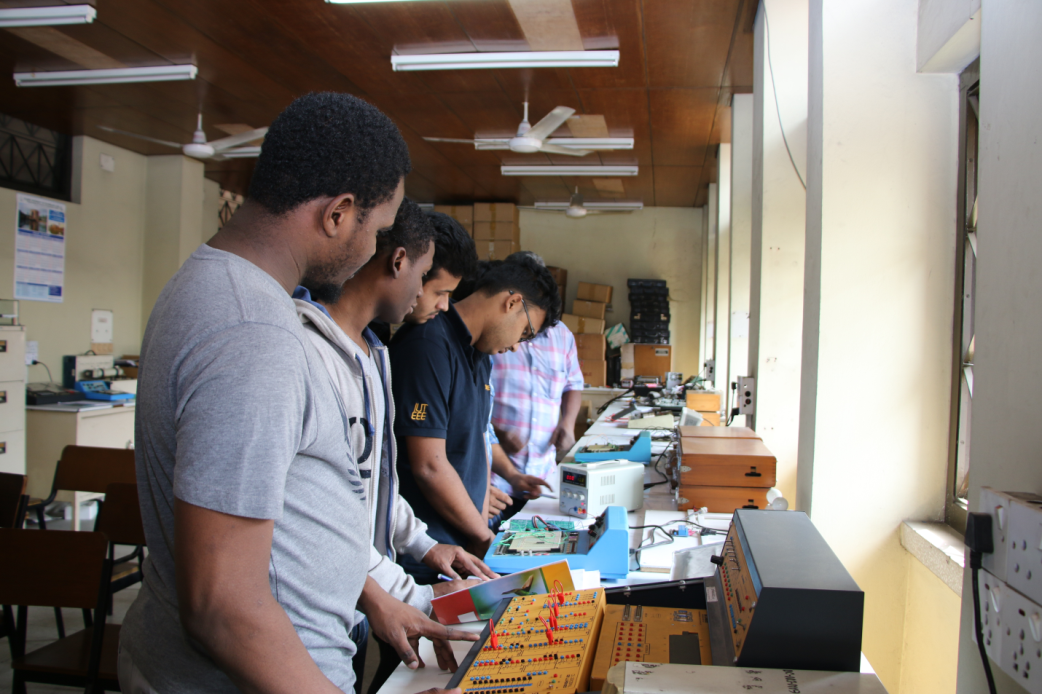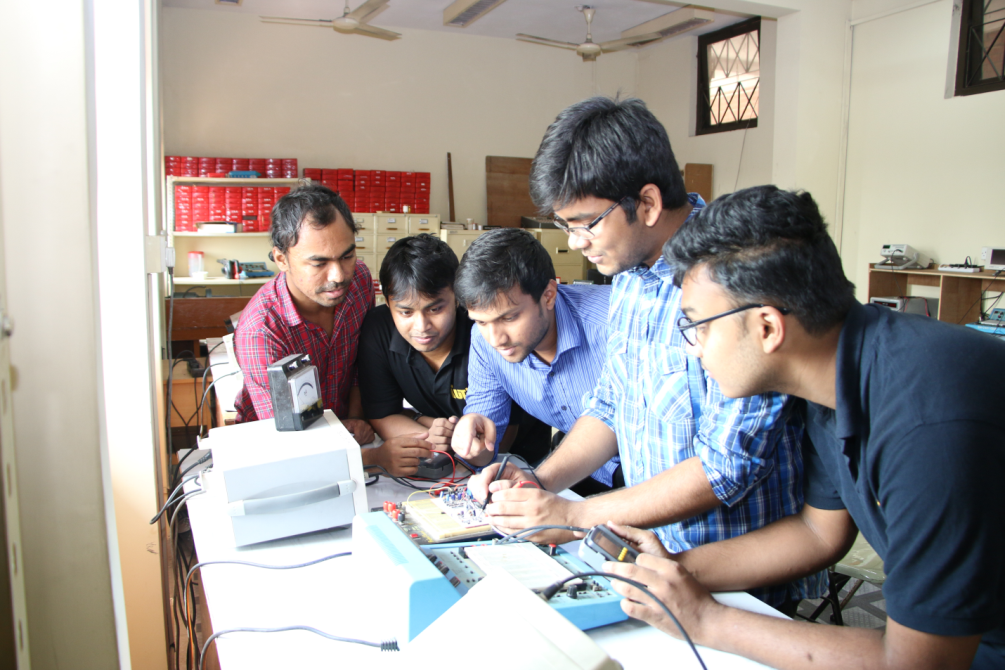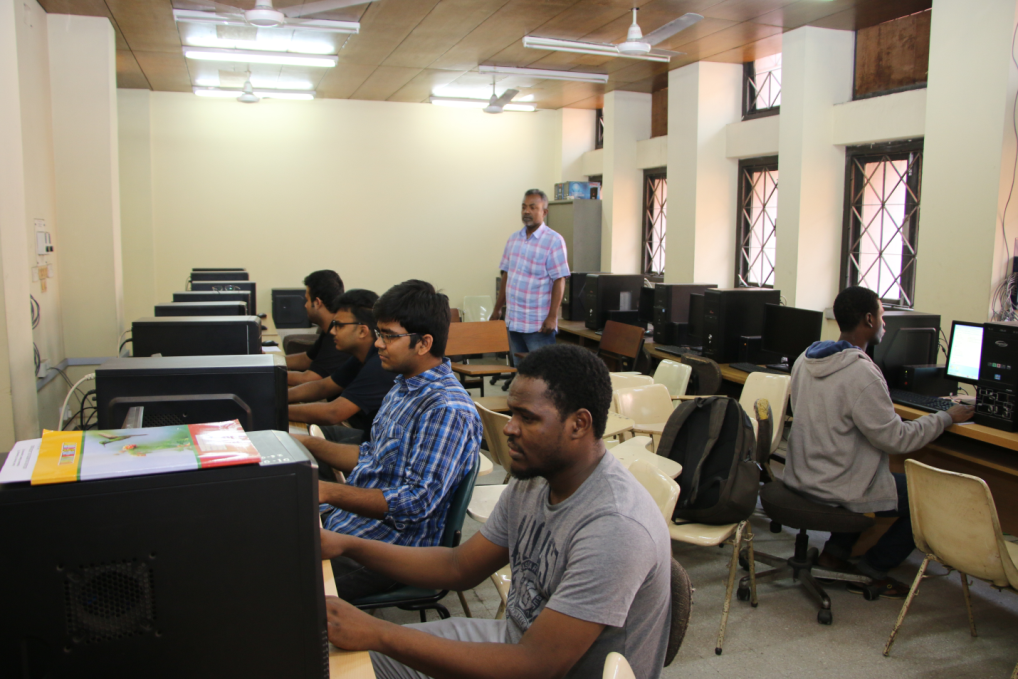Department of Electrical and Electronic Engineering (EEE)
In this 21st century, Electrical and Electronic Engineering is poised to continue making important contributions to key issues such as energy, health, networked communications, environmental monitoring, and information security. The Electrical and Electronic Engineering (EEE) department, with its largest number of students at IUT, strives to educate students in core fundamentals, to be at the forefront of research, and to engage students with emerging technologies and their applications. The EEE department envisions being a place of academic excellence by imparting knowledge and skills in a motivational way, keeping students abreast of the latest developments, and carrying out state-of-the-art research. The mission of the EEE department is to produce electrical and electronic engineers and researchers with a strong foundation, good design skills, and cutting-edge research experience, such that they can serve the OIC member states in particular and the entire world in general and play leading roles in promoting the Islamic world’s competitiveness for integration into the global economy. The EEE department has a healthy mixture of young and experienced faculty members, all of whom display high levels of enthusiasm and dedication. The faculty members, with strong academic and research backgrounds, aspire to instill in the students the attitudes, values, and vision that prepare them for professionalism and life-long learning. The various services, activities, and facilities of the EEE department are briefly described below.
Programs and Degrees
The EEE department offers the following undergraduate program:
• Bachelor of Science in Electrical and Electronic Engineering
The EEE department offers the following postgraduate programs:
• Doctor of Philosophy in Electrical and Electronic Engineering
• Master of Science in Electrical and Electronic Engineering
• Master of Electrical and Electronic Engineering
Syllabi of the mentioned programs and degrees are here.
The B.Sc. Engineering program comprises four years of study consisting of eight consecutive semesters.
The department offers two research degrees, Doctor of Philosophy (Ph.D.) and Master of Science (M.Sc.) in Electrical and Electronic Engineering. These higher degrees are awarded on the basis of prescribed coursework and independent but supervised research on a topic, culminating in the submission of a thesis. The department has awarded its first two Ph.D. degrees this year.
The overall course structure and course contents are not only expertly crafted but also regularly updated to cope with technological advancements. After a recent major revision, from the academic year 2015-2016, a new structure and a set of course contents have been employed, which conform to the latest demands of the world.
Laboratory Facilities
The EEE department offers students a unique hands-on experience in state-of-the-art laboratories. A number of laboratories support the academic pursuits of the students, namely, Electrical Machine Lab., Power Systems Lab., Switchgear and Protection Lab., Microprocessor and Micro-controller Systems Lab., Control System Lab., Digital Electronics Lab., Measurements and Instrumentation Lab., Electronics Lab., RF and Microwave Lab, Telecommunication Lab., Signal Processing Lab. and VLSI Circuits Lab. Some of the equipment, recently added to different laboratories, is shown below.
• Digital Switching system, ELLMAX Fiber Optics educator, ELLMAX Fiber Optics Power Meter, ELLMAX Fiber Optics Monitor, LAN Trainer, Logic Analyzer, Pulse Digital Communication Trainer, and Bluetooth Telecom Trainer were set up in the Telecommunication Lab.
• 2D Radar and Control Panel, Auto-Rotating Antenna Set, Spectrum Analyzer, Microwave Communication Trainer, CDMA DSS Trainer, GSM Trainer, GSM Application Module, RFID Trainer, Satellite Communication Trainer, and Wireless Embedded Trainer were set up in the RF and Microwave Lab.
• Complete Servo Fundamentals Trainer, Process Control Trainer, Process Control Simulator, PID Controller Kit, and Servo Mechanism Trainer Kit were set up in the Control System Lab.
• Digital Oscilloscope, Internal Sweep Function Generator, and LCR Meter were set up in the Electronics Lab.
• LCR Meter, Mega Ohmmeter, and Digital Wattmeter were set up in the Measurements and Instrumentation Lab.
• Electric Machine Trainer, SCR Speed Control, Dynamometer, and LCR Meter were set up in the Electrical Machine Lab.
• Induction Voltmeter, Synchronous Machine, and Busbar system, and On-Load Transformer Tap Changer were set up in the Power Systems Lab.
• Microprocessor Trainer was set up in the Microprocessor and Microcontroller Systems Lab.
